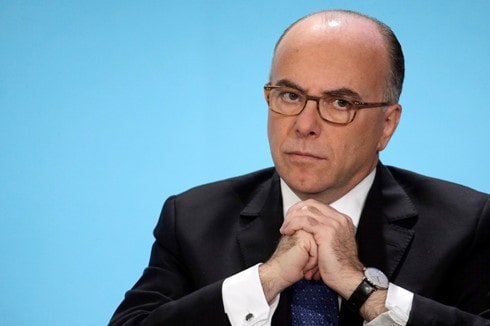France and Germany propose new anti-terrorism law for the whole of Europe
Since the beginning of 2016, France and Germany have witnessed a series of terrorist attacks, most of which were planned over the phone.
France and Germany are pushing for a Europe-wide law that would require mobile messaging providers to provide access to encrypted messages to aid terrorism investigations, following a series of deadly terror attacks in both countries.
Extremists are exploiting cyberspace to spread extremist ideology and incite terrorist plots. They tend to increase the use of encrypted messages for propaganda, making terrorist activities easier.
 |
| Terrorists are increasingly using encrypted messages for propaganda, making it easier to carry out attacks. (illustration: ITN). |
Since the beginning of 2016, France and Germany have witnessed a series of terrorist attacks, most of which were planned through encrypted communication channels in mobile apps.
In the July 26 attack on a church in Rouen, for example, two terrorists communicated via the encrypted messaging app “Telegram.” This month alone, French authorities have arrested seven people on suspicion of terrorism, including three suspects with a clear plan for an attack.
Speaking at a joint press conference in Paris, France on August 23, the Interior Ministers of France and Germany affirmed that it is necessary to apply a law to force the creators of encrypted messaging applications to help governments monitor communications between suspected terrorists and extremists.
Encrypted communications between terrorists pose a major challenge to investigations, and solutions must be found soon to allow effective investigations, according to a joint proposal made by the leaders of France and Germany yesterday.
French Interior Minister Bernard Cazeneuve said the European Commission should draft a law that would force tech companies to remove illegal content or decrypt messages as part of anti-terrorism investigations, while at the same time protecting citizens' digital privacy.
 |
| French Interior Minister Bernard Cazeneuve. (photo: AFP). |
France and Germany do not want to ban encrypted messages, but it would be better to work with social media organizations to limit the use of this tool by Islamic extremists, the official said.
“Security and counter-terrorism are the top priorities for European countries today. However, the proposed law does not mean that the protection of citizens’ data and communications will be violated. Instead, we should look for technical and legal solutions to ensure legal investigations,” Mr. Cazeneuve affirmed.
German Interior Minister Thomas de Maiziere also agreed with the view that network operators have an obligation to help monitor and combat terrorist activities online: “For example, we have a lot of experience in the fight against child pornography. So in situations like this, it has become an obligation for network operators to remove illegal content from the internet. This should also apply to terrorist-related messages.”
According to the German newspaper Mirror Daily, German Interior Minister Thomas de Maiziere recently expressed his desire to discuss with Facebook representatives about providing user information related to terrorist suspects.
Mr. Maiziere also positively assessed the cooperation between German security officials and Facebook in the field of combating Islamism and extremism in recent times.
However, it is an obvious fact that Facebook and many other social networking sites are facing great pressure, between the increasing demands of security officials of various countries for cooperation in the fight against terrorism, and customers who want their privacy protected.
Also at a press conference on August 23, French and German officials expressed their hope that leaders in the European Union will discuss the issue of encrypted communications, specifically the joint proposal put forward by France and Germany, in a broader discussion on security issues at a summit in Bratislava, Slovakia on September 16./.
According to VOV
| RELATED NEWS |
|---|
